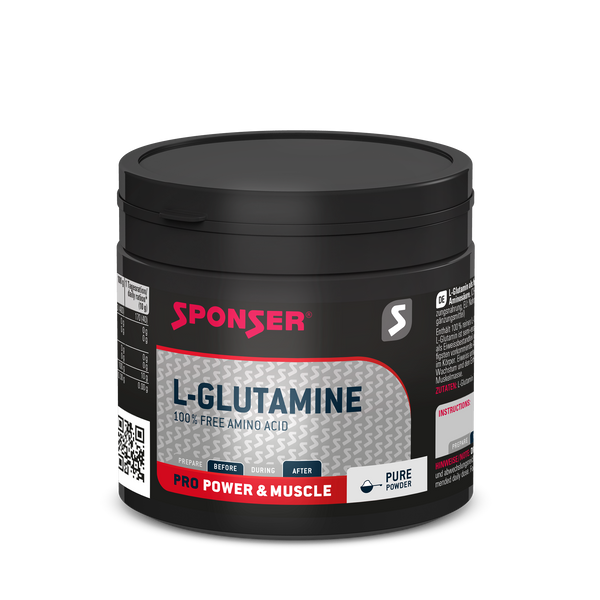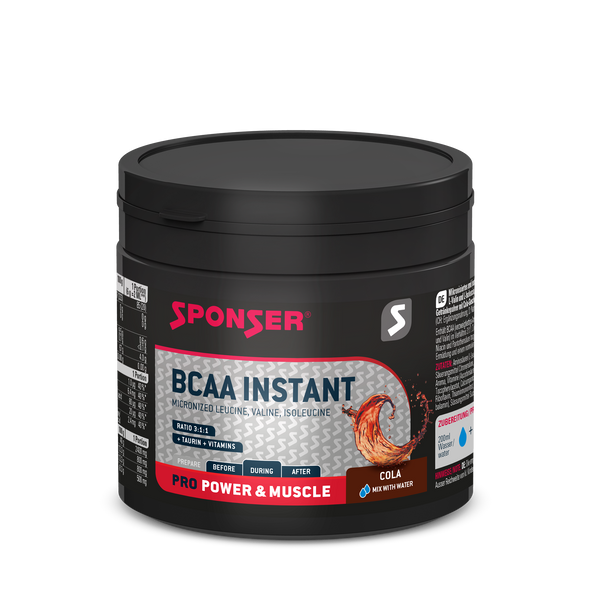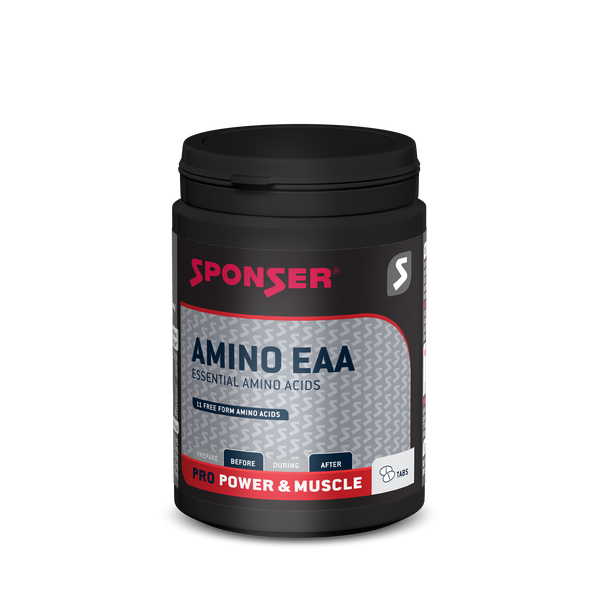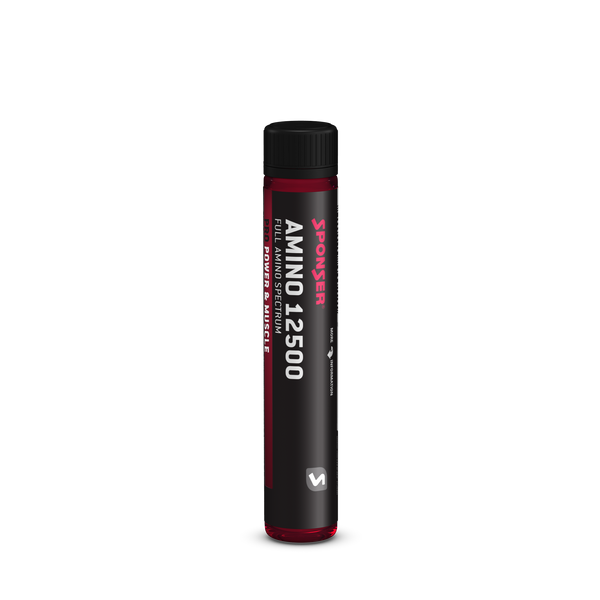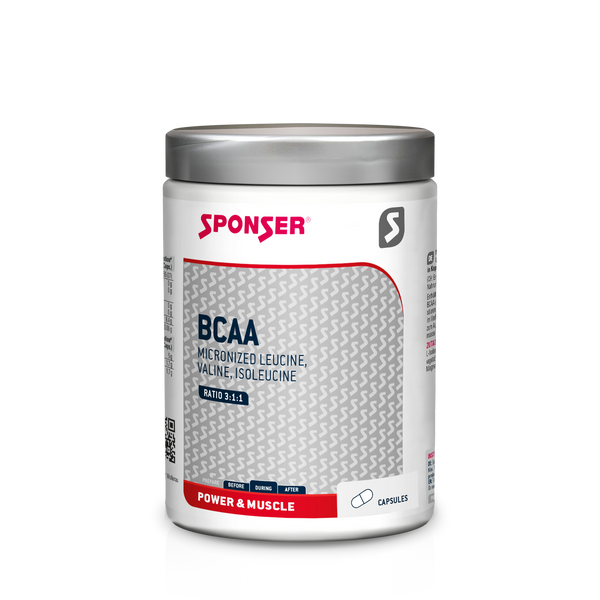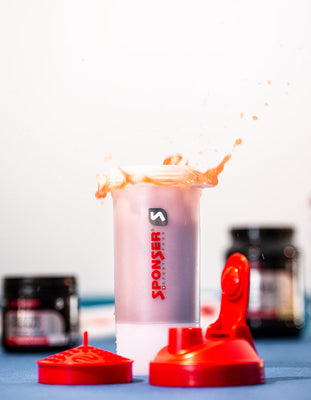
Photo credit: Energie Fitness/Pixabay
BCAA as a key for muscle building and recovery
What oil is to cars, BCAA: branched-chain amino acids are to athletes. BCAA are the branched-chain amino acids leucine, valine and isoleucine, which can be used by the muscles both as building materials and as fuels. They play an important role in the sports nutrition of strength athletes but also endurance athletes, because they can counteract central fatigue in the body under stress.
Endurance athletes therefore benefit from BCAA supplied during exertion because the body's own reserves are conserved. During physical exertion, BCAA are increasingly used by the body to provide energy with increasing duration and, if not supplied, the body's own reserves of muscle tissue are attacked. Decreasing BCAA levels also have a negative effect on central fatigue and the feeling of stress through their influence on tryptophane, another essential amino acid, and indirectly on serotonin. A supply of BCAA already during performance can therefore protect the muscles by first metabolizing the ingested BCAA.
Strength athletes appreciate BCAA mainly because of their importance as anabolic signal generators for muscle protein synthesis, especially leucine. BCAA can thus strengthen the effect of protein, which is crucial for muscle building and maintenance. In this function, BCAA naturally also have a direct influence on recovery, which is interesting for all competitive athletes.
Endurance athletes ideally use BCAA during long-term endurance stresses (cycling and biking marathons, gigathlon, ironman, long-distance triathlon, etc.) and also together with regeneration products. Strength athletes can take BCAA shortly before the workout and/or strengthen the post-workout protein shake.
In amino acid metabolism BCAA are also used for the body's own production of glutamine. Glutamine is the most abundant amino acid in the body and the requirement often exceeds its availability during high stress and especially in the case of injuries or muscle-wasting diseases. Supplementation with BCAA can therefore also help the body to synthesize glutamine, which indirectly helps prevent the breakdown of body protein for glutamine production. Glutamine also promotes glycogen resynthesis and supports immune function. All in all, BCAA and glutamine play an important role in regeneration after physical exercise due to their properties.
BCAA is available from SPONSER in several forms
AMINO 12500
Contains about 1100 mg BCAA per ampoule. The ampoules are practical to take with you, whether in a cycling jersey or sports bag, and are therefore ideal for both endurance and strength sports.
AMINO EAA
Tablets with 8 essential and 3 semi-essential amino acids in their free form. To be taken alone or in combination with protein and regeneration supplements in two portions before and after exercise. The daily intake of 12 tablets provides 2400 mg leucine and has a BCAA content of 5200 mg.
BCAA CAPSULES
Strength athletes ideally take BCAA capsules in two servings shortly before and shortly after training: 2 capsules per 10 kg body weight divided into two servings. Endurance athletes consume 2-4 capsules per hour during long endurance efforts and another 1 capsule per 10 kg body weight shortly after the performance. One daily serving (4.2 g or 2 measuring spoons) contains 4000 mg BCAA, of which 2400 mg L-leucine as well as both 800 mg L-isoleucine and L-valine (3:1:1 ratio).
BCAA INSTANT
Powder for addition in shakes and drinks in individual dosages. Available as a neutral powder or with cola flavour. One daily serving (4.2 g or 2 measuring spoons) contains 4000 mg BCAA, of which 2400 mg L-leucine as well as both 800 mg L-isoleucine and L-valine (3:1:1 ratio).
EAA INSTANT
A daily serving of 24 g provides the maximum permitted amount of all essential amino acids according to the Swiss Food Safety Law. It provides 11 essential and conditionally essential amino acids in free form. The drink is equally suitable for strength and endurance athletes who limit their protein supply to the essential and do not want to take in additional calories. Take 1 serving directly before, during and/or after exercise.
L-GLUTAMINE
Supplement consisting of 100% of the semi-essential amino acid L-glutamine. Important amino acid for the gut and the immune system, for increased requirements in times of stress in competitive sport, for specific supplementation before and after physical activity. Take 10 g divided into several portions per day.
LIQUID ENERGY BCAA
Contains 42 g of carbohydrates with 500 mg of BCAA in a ratio of 2:1:1. This energy gel is ideal during long-term endurance training and can also be used for regeneration. Application: ½ tube every 20-30 minutes. Rinse with 200 ml water.













